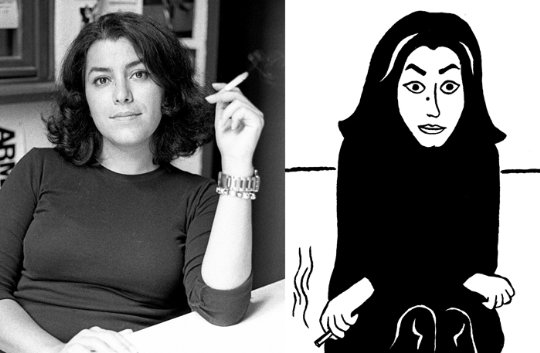
We are also considering whether the book should be included, after appropriate teacher training, in the curriculum of eighth through tenth grades.

Due to the powerful images of torture in the book, I have asked our Office of Teaching & Learning to develop professional development guidelines, so that teachers can be trained to present this strong, but important content. “We have determined Persepolis may be appropriate for junior and senior students and those in Advance Placement classes. If your seventh grade teachers have not yet taught this book, please ask them not to do so and to remove any copies of the book from their classrooms. It was brought to our attention that it contains graphic language and images that are not appropriate for general use in the seventh grade curriculum. “ Persepolis is included as a selection in the Literacy Content Framework for seventh grade. This banning of Persepolis as “inappropriate,” if publicity and furor are any measure of the effects of banning a book, it raised a huge ruckus throughout the city and beyond! The CPS CEO responded on March 15: I was not provided a reason for the collection of Persepolis. “Yesterday afternoon, one of the Network Instructional Support Leaders stopped by my office and informed me (per a directive given during the Chief of Schools meeting on March 11) that all ISLs were directed to physically go to each school in the Network by Friday (3/15) to: *confirm that Persepolis is not in the library, *confirm that it has not been checked out by a student or teacher, *confirm with the school principal that it is not being used in any classrooms, *and collect the autobiographical graphic novel by Marjane Satrapi from all classrooms and the library. On March 14 Lane High School staff members received the following email: Persepolis: The Story of a Childhood has been part of the seventh grade curriculum in the Chicago Public Schools for six or seven years and it’s been taught in the senior English class at Lane Tech College Prep High School. This story demonstrates both how easily a book can disappear from a classroom and how, with pressure from students, teachers, community members, and press, the book can return.

Enchanting as the book is, it was difficult for us not to focus on the many times the book has been challenged and, sometimes, banned-it was the second most banned book in 2014, according to the ALA Top Ten list.įollowing is the story of a banning that NCTE participated in solving. We were taken with the illustrations, Marjane Satrapi’s sense of humor, and her resilience as a child growing up with revolutionary parents during this scary time when the public culture of her country was suppressed and people could be jailed at any moment. Recently, my book club read and discussed Persepolis, Marjane Satrapi’s graphic novel memoir of her childhood during the Islamic Revolution.


 0 kommentar(er)
0 kommentar(er)
